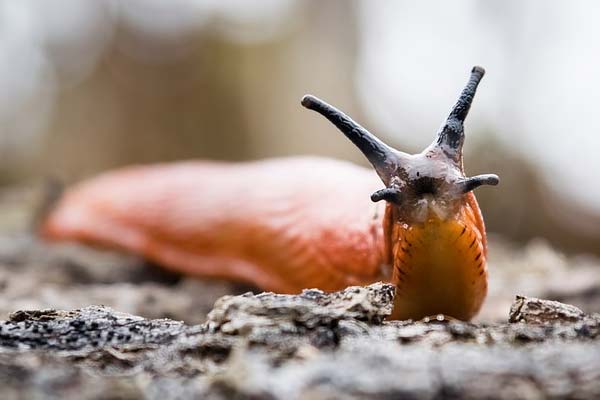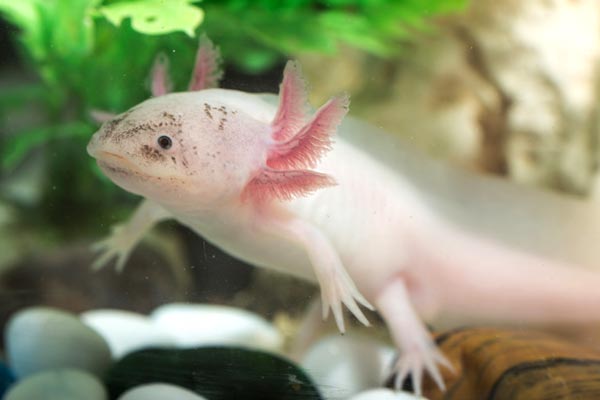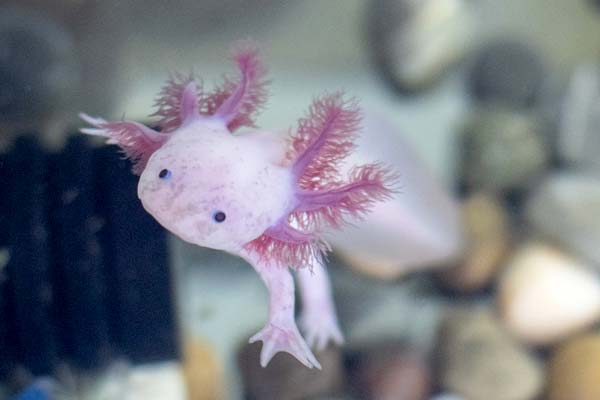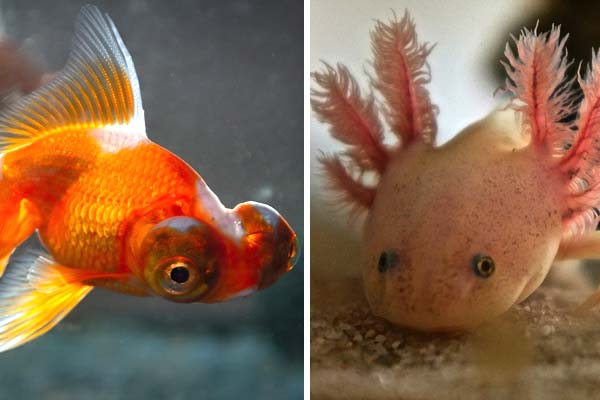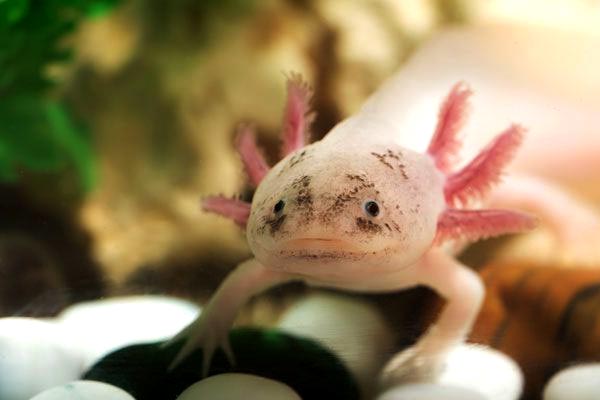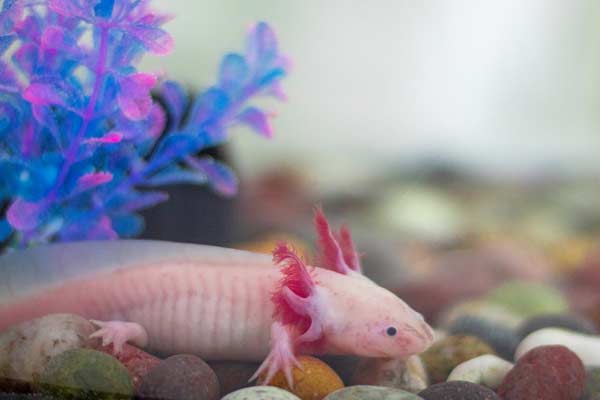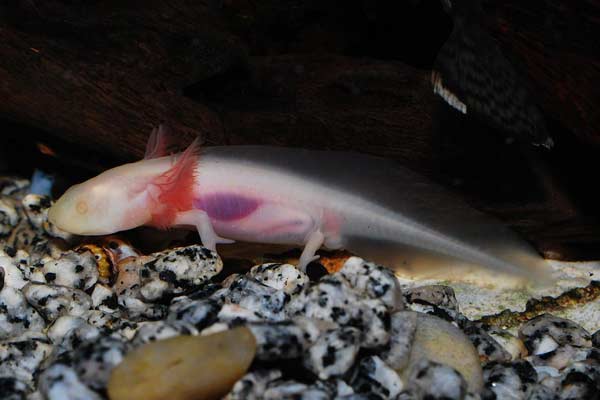Can Axolotls Eat Slugs? Understanding the Risks, Benefits, and Precautions
Axolotls are captivating creatures known for their unique appearance and regenerative abilities. Carnivorous animals feed on worms, insects, and small fish. However, some axolotls may also consume snails or slugs if available.
The question of whether axolotls can eat slugs is a common one among pet owners and enthusiasts. While some sources suggest that axolotls can safely consume slugs, it is essential to note that not all slugs are safe to eat.
Additionally, it is crucial to ensure that the slugs have not been exposed to harmful chemicals or toxins, as this can be detrimental to the axolotl’s health.
Can Axolotls Eat Slugs?
Axolotls are known to be voracious eaters, and they can consume a variety of live foods. One of the questions that arise is whether axolotls can eat slugs. The answer is yes; axolotls can eat slugs. However, certain risks and considerations must be considered before feeding slugs to axolotls.
Potential Risks and Considerations
Slugs as Carriers of Harmful Chemicals
Slugs can be carriers of harmful chemicals, which can be toxic to axolotls. Before feeding slugs to axolotls, it is essential to ensure they are free from harmful chemicals or toxins.
This can be achieved by avoiding feeding slugs from areas contaminated with pesticides or other harmful chemicals.
Slugs as Carriers of Diseases and Parasites
Slugs are known to carry diseases and parasites that can harm axolotls. Therefore, it is crucial to ensure the slugs are free from diseases or parasites before feeding them to axolotls.
This can be achieved by avoiding feeding slugs exposed to other animals or areas contaminated with parasites.
Nutritional Value of Slugs
Slugs offer a range of nutritional benefits for axolotls, making them a viable food option. Slugs are an excellent source of protein, which is essential for the growth and development of axolotls. They also contain essential vitamins and minerals for axolotls’ overall health and well-being.
Feeding Slugs to Axolotls
Axolotls are carnivorous pets that require a well-balanced diet to remain healthy. They can eat a variety of live and frozen foods, including slugs. However, it is essential to follow proper feeding guidelines to ensure the safety of your axolotls.
Before feeding slugs to your axolotls, it is crucial to ensure they are safe and free from pesticides. Slugs can carry diseases and parasites that can harm your axolotls. Therefore, it is recommended to culture your slugs or purchase them from a reliable source. It would help if you also treated the slugs with a decontaminating solution to eliminate any harmful bacteria or parasites.
To prepare slugs for consumption, you can freeze or blanch them in boiling water for a few seconds. Freezing the slugs will kill any bacteria or parasites while blanching them will make them easier to digest. It is essential to avoid overfeeding your axolotls and to remove any uneaten slugs from the tank after feeding time.
Axolotls require a clean and spacious tank to thrive. Therefore, providing them with adequate space, substrate, and hiding places is recommended to reduce stress. You should also ensure the tank is well-maintained and free from harmful chemicals or contaminants.
Feeding Frequency and Schedule
Determining the appropriate feeding frequency for axolotls is crucial for their health and well-being. Axolotls are carnivorous creatures and require a diet that primarily consists of meaty foods, such as insects, worms, slugs, small crustaceans, crickets, mosquito larvae, smaller salamanders, frog tadpoles, and even smaller fish they can swallow.
The best way to feed axolotls is every 2-3 days. This is the optimal time, and you will want to be moderate in the amounts of food you feed them, too. This is a reasonable time frame since you will prevent overfeeding this way and keep them from being hungry.
Overfeeding axolotls can result in health issues like obesity, bloating, and digestive problems, which can harm their well-being.
Factors to consider when establishing a feeding schedule include your axolotl’s age, size, and activity level. Younger axolotls will require more frequent feedings than adults, and larger axolotls will need more food than smaller ones.
Additionally, axolotls that are more active or have a higher metabolism may require more frequent feedings.
Axolotls have a voracious appetite and consume anything that fits into their mouths. Therefore, providing them with food suitable for their size and age is crucial to ensure their well-being.
Live food such as crustaceans, worms, slugs, snails, crickets, mosquito larvae, frog tadpoles, and occasionally small fish make excellent axolotls’ feed options.
Cultivating Slugs for Axolotls
Axolotls are known for their diverse diets, which include insects, worms, crustaceans, and even small fish. Slugs are also a viable food option for axolotls, but ensuring they are safe for consumption is crucial. One option is cultivating slugs specifically for axolotls, which can provide a reliable food source.
Exploring the Option of Culturing Slugs for Axolotls
Cultivating slugs for axolotls can be a cost-effective and convenient option for axolotl owners. It also ensures that the slugs are free of harmful chemicals or parasites that could harm the axolotls.
However, it is essential to note that not all slugs are safe for consumption. Therefore, it is crucial to research and select the appropriate species of slugs that are safe for axolotls to eat.
Step-by-Step Guide to Cultivating Slugs as a Food Source
To cultivate slugs for axolotls, follow these simple steps:
- Select a suitable container: A plastic lid can house the slugs. The container should be large enough to allow the slugs to move around.
- Create a suitable environment: Slugs require a moist environment to thrive. Therefore, the container should be filled with moist soil or compost. It is also essential to maintain a consistent temperature of around 20-25°C.
- Add food: Slugs feed on various organic matter, including fruits and vegetables. A consistent food source will help the slugs grow and reproduce.
- Harvest the slugs: Once they have reached a suitable size, they can be harvested and fed to axolotls. It is vital to ensure the slugs are thoroughly rinsed before feeding them to axolotls.
Alternative Food Options for Axolotls
Axolotls exhibit opportunistic feeding behavior, readily consuming almost anything that can fit into their mouths.
However, it is crucial to provide them with a balanced diet that meets all their nutritional needs. In addition to the usual food options like worms and small fish, there are several other suitable food choices for axolotls.
One such option is slugs. While they may not be as commonly available as other food choices, slugs can be a great source of nutrition for axolotls. However, ensuring the slugs are free of parasites and diseases is vital before feeding them to your pet.
Another alternative food option for axolotls is small crustaceans like shrimp or crayfish. These can be a good source of protein and other essential nutrients. However, ensuring that the crustaceans’ size is appropriate for your axolotl’s size is crucial.
Axolotls can also be fed small crustaceans, crickets, mosquito larvae, smaller salamanders, frog tadpoles, and even smaller fish they can swallow. It’s crucial to ensure that the food is appropriate for their size and feeding habits.
Maintaining a balanced diet is of utmost importance for the health and well-being of axolotls. Offering a diverse range of food options helps ensure they receive all the necessary nutrients for optimal growth and vitality.
Conclusion
In conclusion, axolotls can eat slugs if they are not too big and have not been exposed to harmful chemicals or toxins. Slugs are an excellent source of protein and other nutrients that can help axolotls grow. However, it’s important to note that not all slugs are safe for them to consume.
Axolotls have a robust immune system that can easily fight off any parasites or bacteria that might be present in the slug’s body. This makes them one of the few animals that can safely consume slugs without harm.
It’s also important to vary their diet and not rely solely on slugs as their primary source of nutrition. Axolotls should be fed a balanced diet that includes a variety of live and commercial foods to ensure they receive all the necessary nutrients.

